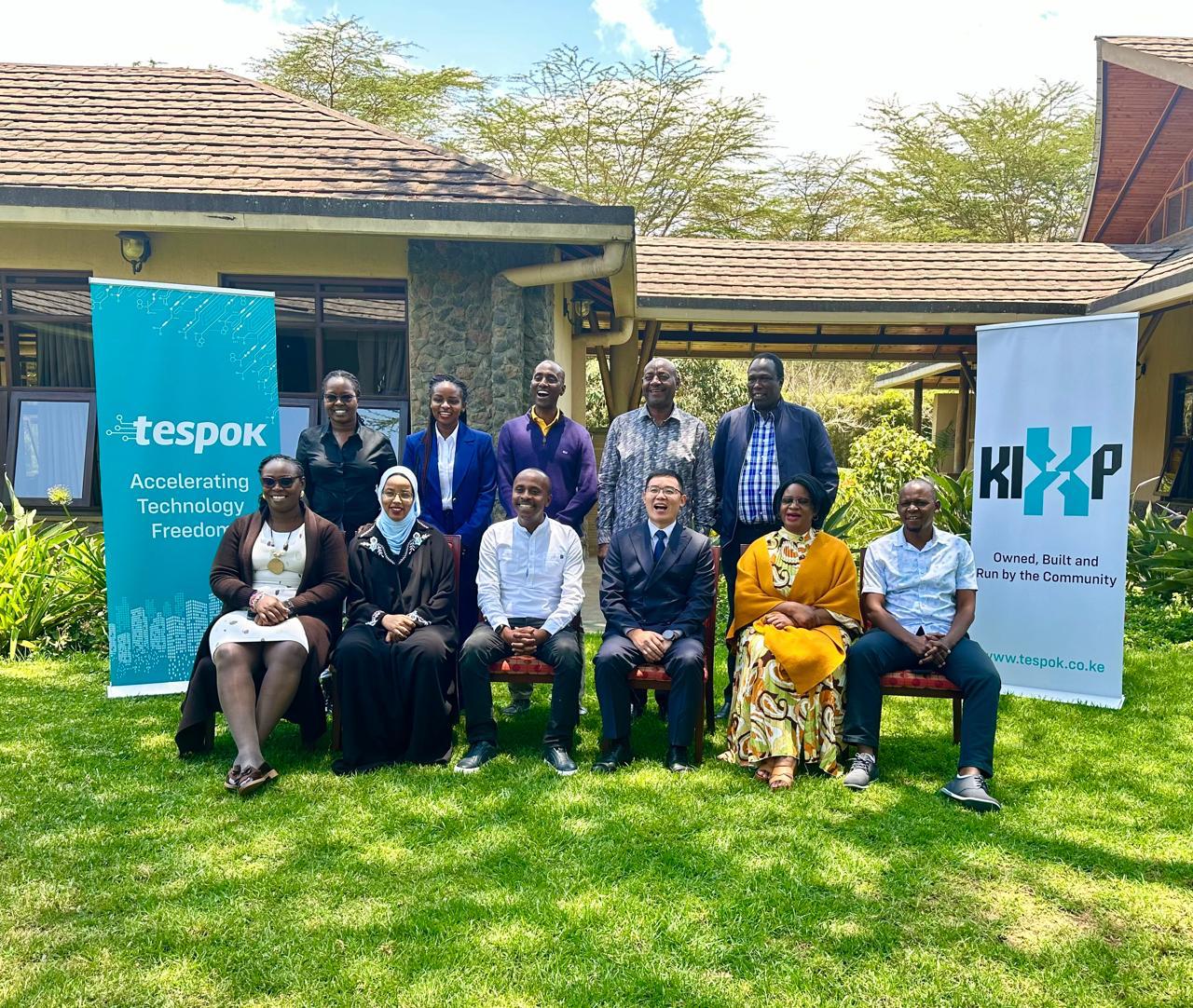Dagoretti South MP John Kiarie led members of the National Assembly Committee on CII in a workshop organised by the Technology Service Providers of Kenya (TESPOK). The workshop focused on discussing global policies and identifying gaps in Kenya related to technology infrastructure, data protection, cybersecurity, and AI.
The Committee sought to understand global best practices and obtain suggestions from various stakeholders that the Committee can utilize to inform their discussions and debates on the legal and regulatory frameworks for the country.
Addressing the workshop, Kiarie called for policies that ensure Kenya’s compliance with international data standards: “This Committee is very proactive in the sector. We seek to fill in the legislative gaps and move this sector forward. Data protection isn’t just about being within the boundaries in Kenya; we need to meet the Adequacy decision”.
Grace Githaiga, CEO and Convener of KICTANet, shared findings of a report on Data Protection in Kenya which highlighted the achievements since the Data Protection Act which was passed 5 years ago, as well as proposing recommendations to further enhance Data Protection and support the Data Economy. The Committee agreed on the importance of robust data protection policies.
Fiona Asonga, CEO of TESPOK, highlighted several issues that the industry is advocating for that range from: “immediate enactment of the Kenya Information and Communications Act, KICA, (Amendment Bill) and KICA Regulations 2024 to support the sector in the advent of emerging technologies; as well as the development of a multisectoral infrastructure planning, development and coordination framework that will streamline infrastructure rollout at the county and national governments.”
Huawei expert, Adam Lane, shared perspectives on Digital Economy Policies from around the world including insights on how Kenya can enhance the value contribution of ICT to the country. This would incorporate strengthening various regulations, institutions and cross-agency and cross-sector coordination mechanisms. These would target certain gaps in Kenya related to digital skills training and capacity building, the availability of data for research, analysis and development of local software or AI solutions amongst others.
Ben Roberts, Chair of the KEPSA ICT Committee, provided insights on ICT infrastructure, helping the Committee understand the different components that go into developing infrastructure as well as running infrastructure in ways that are commercially and technically sustainable.
The Committee discussed cybersecurity issues with Col. (Dr) James Kimuyu, Director of the National Computer and Cybercrime Coordination Committee (NC4) such as online defamation and impersonation as well as the importance of convicting fraudsters and protecting Kenyans online. They agreed on the need to foster multi-agency collaboration, strengthen cybersecurity incident response, and build strong private sector partnerships to deliver a secure cyberspace for the people of Kenya; and to consider updates to the Computer Misuse and Cybercrimes Act as well as other documents in order to reflect the rapidly changing cyberspace with consequential implications for governance, management, and tools. They also discussed the need for more capacity building and ratification of key international instruments, such as the Budapest and Malabo Conventions, to enable provision of mutual legal assistance.
In a session on Artificial Intelligence (AI), the Committee discussed with Qhala the challenge of ensuring Africa can be represented in the development of AI, and can leverage AI. This needs to create an AI enabling environment for a thriving AI ecosystem, made up of Data Sets, Compute, Talent and Use Cases.
Prioritizing innovation over regulation was discussed, with the understanding that intelligence is not equal to humanity and that there is a misunderstanding over possible negative impact of AI on jobs which is unlikely to happen. The issue of data sovereignty came up as well which acknowledged the importance of making sure that Kenyan data is used for the benefits of Kenyans and Kenyan businesses.
Lucas Omollo, Chief Manager, ICT & Smart City Solutions at Konza Technopolis updated the Committee on the potential of leveraging Jitume Labs as well as various Government Cloud software that is being developed and hosted at the Konza Data Center. It was acknowledged how important it is for the country to develop more local software solutions to capture more value from the digital economy and address more local needs.





